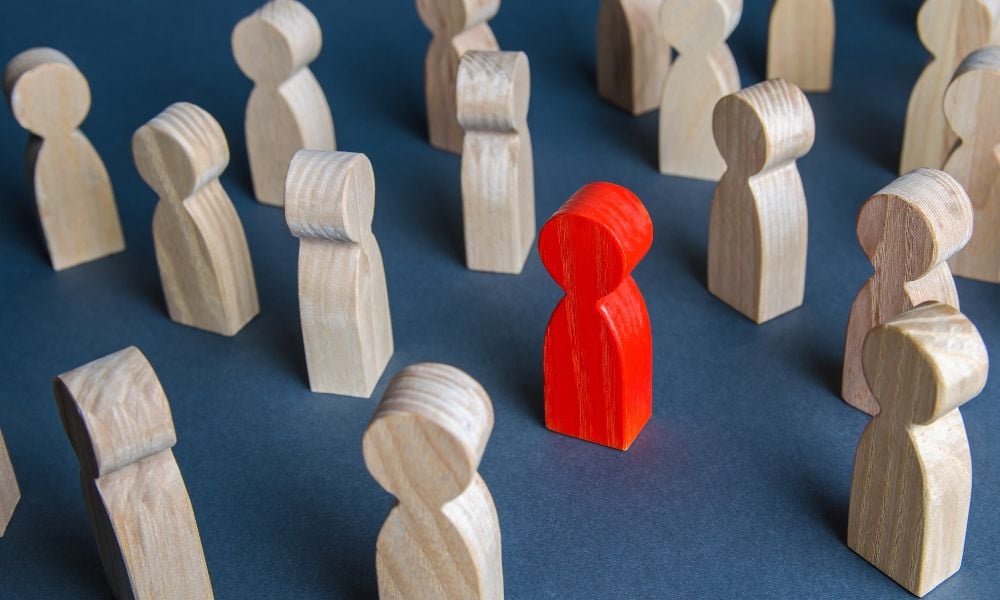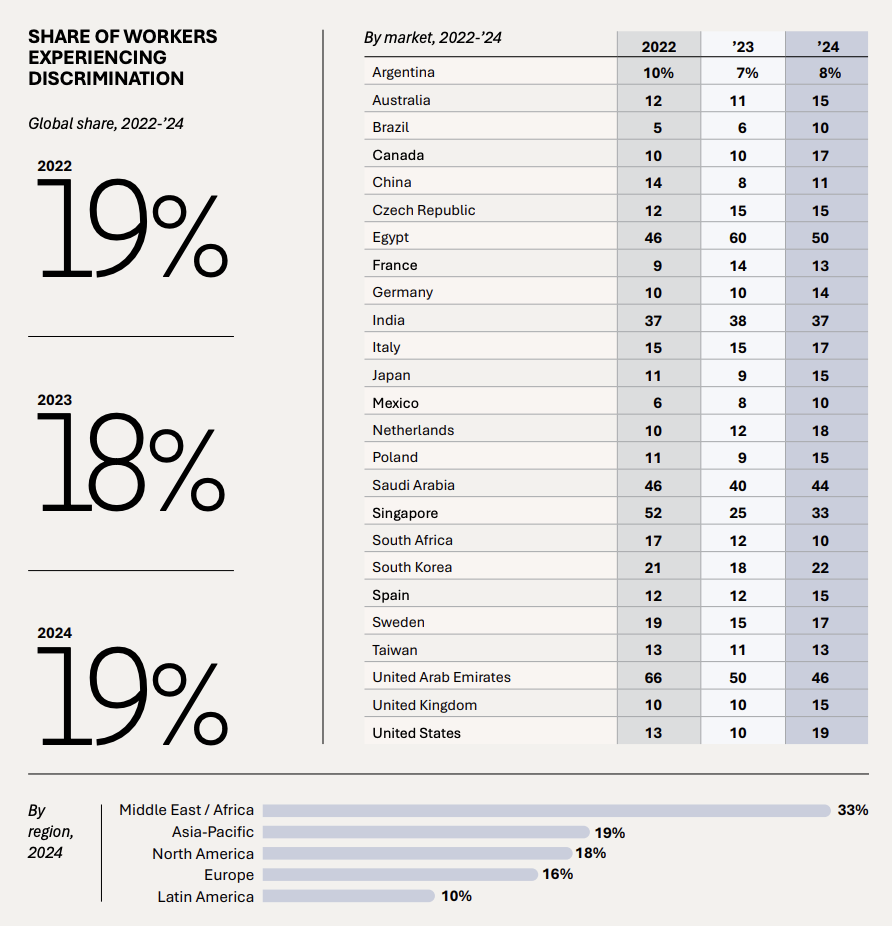
Which employee group reports the highest level of discrimination?

Workplace discrimination in Singapore went up since last year, with one in three employees experiencing bias in 2024, according to a new report from ADP.
The latest People at Work report revealed an eight per cent uptick in workplace discrimination in Singapore, increasing from the 25% recorded in 2023.
This also brings Singapore's incidents of workplace discrimination higher than the Asia-Pacific's 19% average.

"Discrimination erodes employee morale and productivity, directly undermining business results and growth in the long term," said Yvonne Teo, Vice President of HR, APAC at ADP, in a statement.
According to the report, 55% of workers who identify as an ethnic minority said they faced discrimination at work.
This is also the case for 27% of women and 34% of men.
Younger workers are also more likely to experience discrimination, with 23% of employees aged 18 to 34 reporting it, compared to just 11% among those aged 55 to 64.
Even employees at the top of the organisational hierarchy aren't safe from discrimination, the report found. Globally, 27% of those in the C-suite said they experienced discrimination, the highest rate among worker classifications.
Discrimination rates in other positions are:
Discrimination in the workplace can have a myriad of consequences for organisations, particularly on productivity and retention, according to the report.
Globally, workers who experience discrimination are more likely to fall into the low-productivity category, and are also more likely to be actively looking for or interviewing for a new job.
"People who felt discriminated against were less likely to feel productive, and many said they were actively looking to jump to a new employer," the report read.
"Differences between demographic groups were negligible. Workers experiencing discrimination, regardless of gender, age, or racial background, reported similar levels of low productivity."
Teo said reversing the uptick in discrimination will require organisations to embed inclusion into every process, from bias-aware recruitment to equitable performance review and promotion framework.
"Awareness education is the essential first step in building inclusion, which then enables leaders to actively recognise and address biases, embedding inclusive practices within the company culture," she said.
Teo added that Singapore's Workplace Fairness Bill has also set the stage in stamping out discrimination in workplaces.
The bill seeks to establish fair employment practices and protect individuals from discrimination by employers on different grounds, such as age, nationality, sex, marital status, religion, disability, among others.
"Now, employers must turn compliance into meaningful culture change," Teo said.